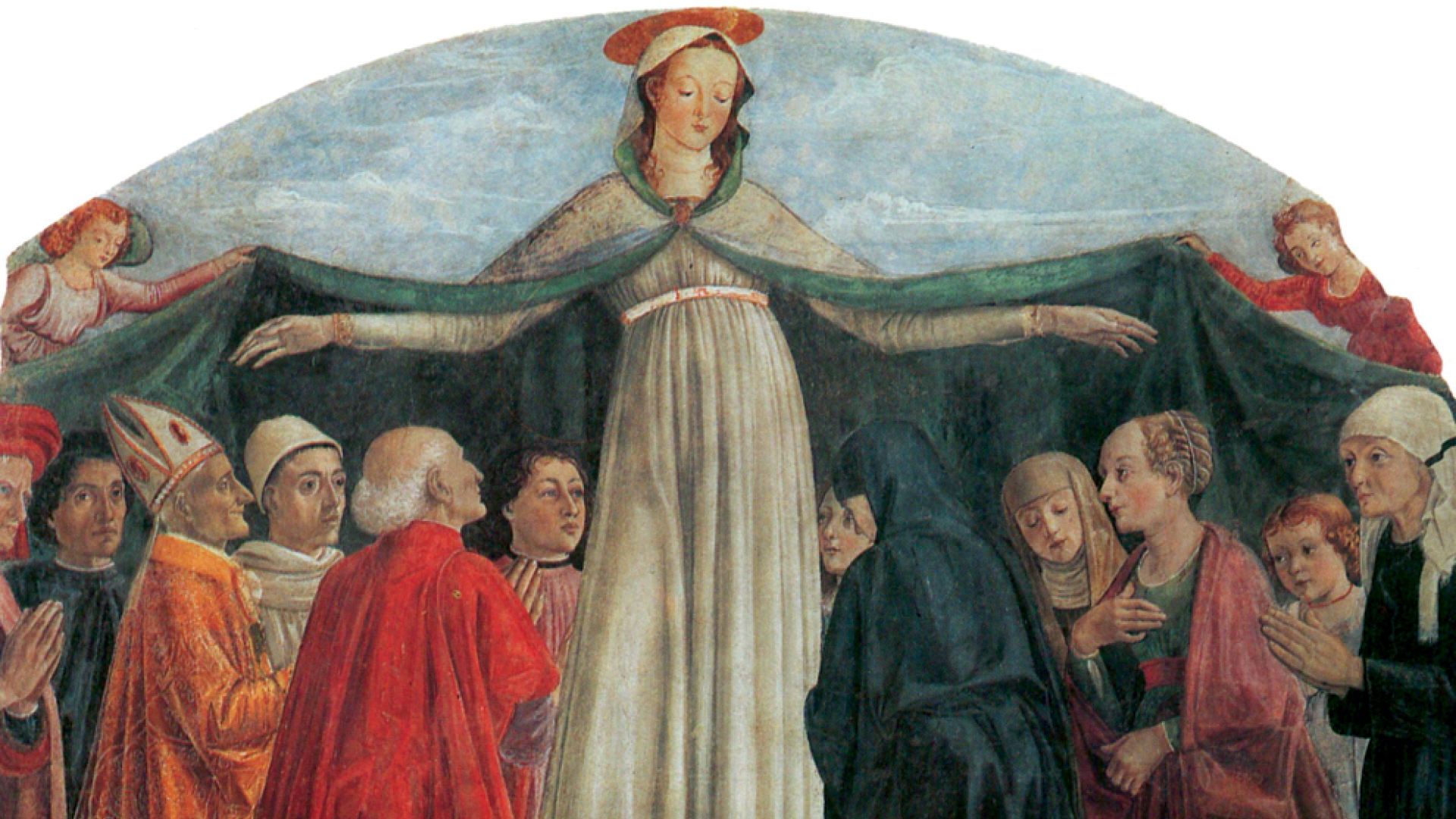Importance of Hierarchy in Authority

Catholicism teaches that God created the universe in a hierarchical order over which He is the supreme authority.
The Catholic notion of collegiality insists upon adherence to the hierarchical order of authority in the Catholic Church.
Catholicism and Modernism, as shown below, understand truth very differently, one defending the primacy of God’s objective reality, the other promoting the subjective expression of individual opinions. This divergent definition of truth has also produced two conflicting views of how the Church should be governed.
Catholicism teaches that God created the universe in a hierarchical order over which He is the supreme authority. Likewise God, in the divine person of Jesus Christ, established His one true Church over which He appointed Peter and his successors as its supreme head.
Traditionally these successors, the popes, have exercised an immediate and unmediated jurisdiction over every office in the Church. In moral, doctrinal, and disciplinary matters the pope’s word is final for he speaks with the direct authority of Christ.
The bishops, likewise, as successors of the other apostles, also receive their power from God and exercise supreme religious authority in their respective dioceses, subject only to extraordinary intervention by the pope.
Threat to a clear hierarchical structure
The modernist concept of religious collegiality, stemming from a faulty understanding of liberty and individual rights, threatens this clear, hierarchical structure. It insists that a strict democratic process should govern the Church at all times.
The pope is thus free to have his say, but his cardinals and bishops must always be allowed to voice their own opinions as well. Likewise, a bishop in his diocese must consult all his priests and respect their views, while each parish priest must similarly consult all his parishioners.
This is the only way, according to Modernism, that everyone’s inviolable individual rights and liberty will be preserved. Everyone, therefore, must learn to communicate and compromise, even the pope.
Such unwavering devotion to debate and discussion severely obscures the hierarchical nature which God intended for his Church and unnecessarily hinders the actions of its leaders.
True notion of collegiality
Catholicism has always valued collegiality, but in a very different sense than that proposed by Modernism. All Catholics, especially priests and bishops, are bound together by a common commitment to the divine truths and the salvation of souls. In this sense all Catholics are colleagues, seeking God’s greater glory in all things.
So long as these two primary objectives—love of God and neighbor—are respected, Catholics will operate in unity and harmony even though they have different responsibilities and undertake different tasks.
This true notion of collegiality, however, does not always require lengthy discussion before making any decision since Catholics, so long as they are committed first and foremost to the Faith, preserve unity and harmony in all their various undertakings. This is the essence of Catholic collegiality.
Respect and clear distinction
Certainly the pope and bishops should consult one another, their fellow priests, and the laity when appropriate, but they are not bound to do so in cases where such deliberation would be inexpedient, unproductive, or unnecessary.
The Church, moreover, has convened numerous councils during its long history, but the popes have primarily guided these councils and the individual bishops have been directly responsible for implementing any subsequent rulings in their respective dioceses.
Collegiality, when properly observed, thus maintains due respect and clear distinction between all the various members of the Church’s hierarchy while preserving their common commitment to teaching and defending the essential truths of the Faith.